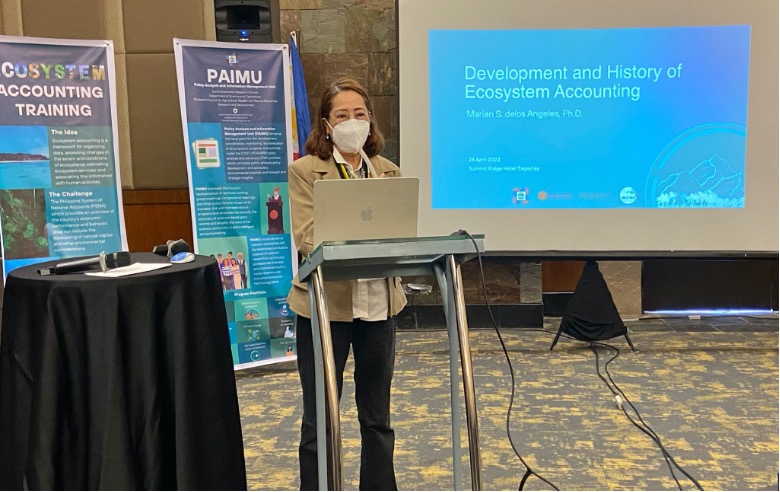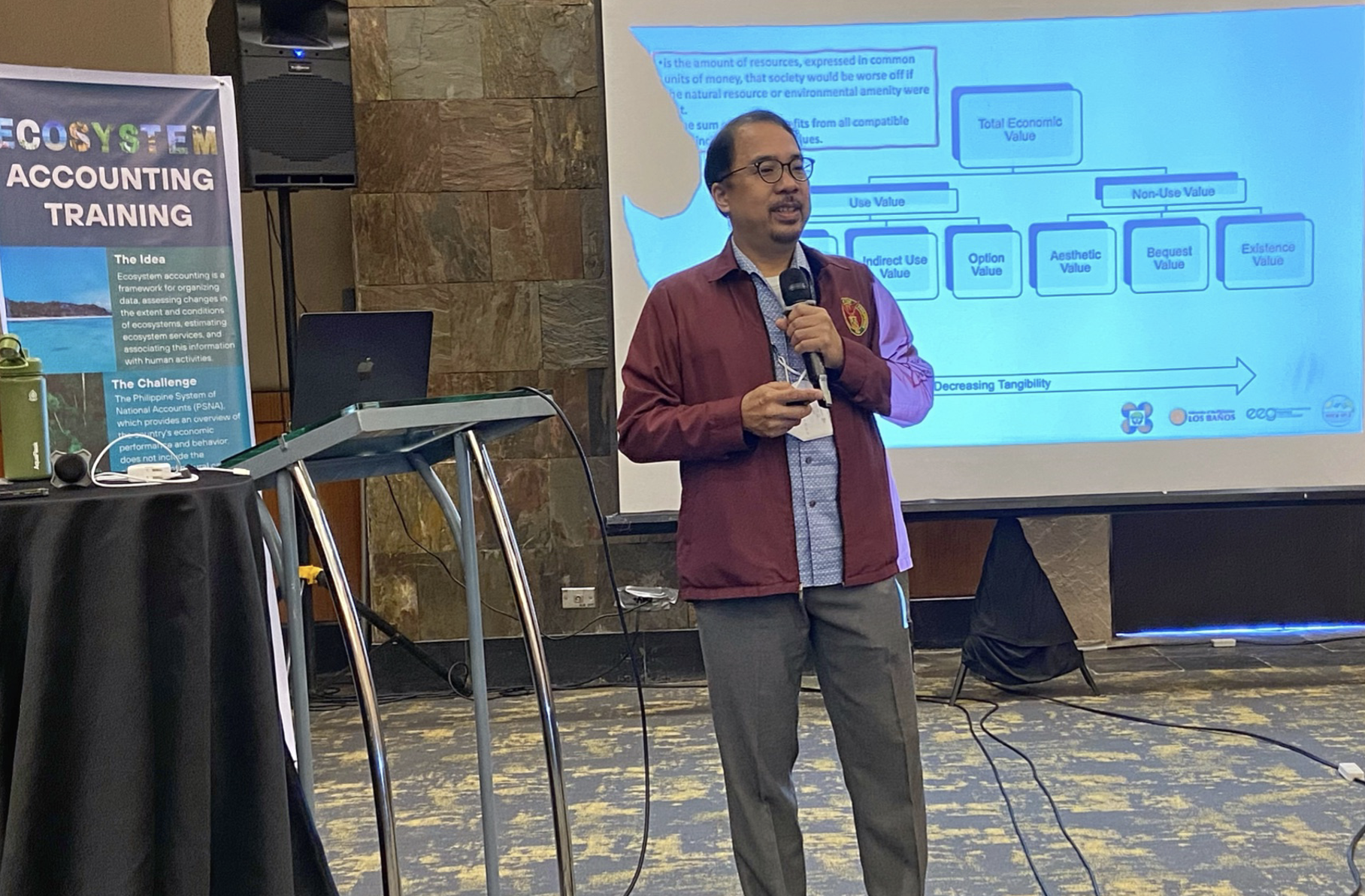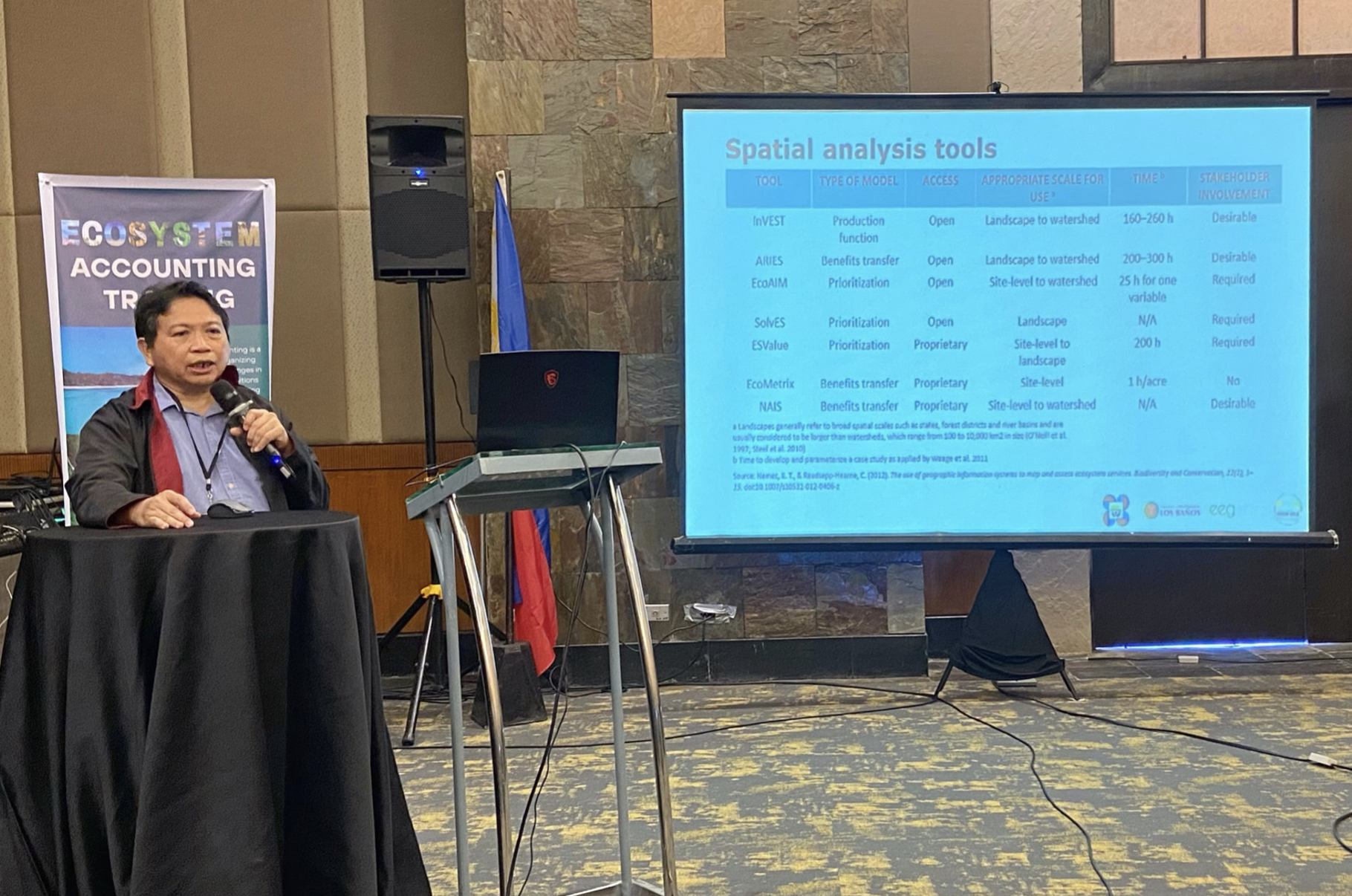The Philippine Council for Agriculture, Aquatic and Natural Resources Research and Development of the Department of Science and Technology (DOST-PCAARRD) conducted a week-long Ecosystem Accounting Training in collaboration with the University of the Philippines Los Baños (UPLB) Interdisciplinary Program on Integrated Natural Resources and Environmental Management (IdSC-INREM) and the Economy and Environment Group Philippines (EEG) on April 24-29, 2023 at Summit Ridge Hotel in Tagaytay City.
Attended by 30 participants from different institutions of the country, the training aimed to enhance the knowledge and skills of participants in ecosystem accounting, particularly on the analytical approaches used, and create a network of socio-economics researchers and champions who will spearhead future ecosystem accounting projects.
Various state universities and colleges, research institutions, and government agencies participated in the training, including the Department of Environment and Natural Resources CALABARZON (DENR-4A), Ecosystems Research and Development Bureau (DENR-ERDB), Mindoro State University (MinSU), Cavite State University (CavSU), Misamis University (MU), Nueva Vizcaya State University (NVSU), and Southern Luzon State University (SLSU).
Dr. Ernesto O. Brown, director of the Socio-Economics Research Division (SERD) of DOST-PCAARRD, opened the program with a video message. He expressed his gratitude to the event organizers and the Council's partners for making the event possible. Dr. Brown emphasized the importance of ecosystem accounting to understand the value of natural resources and ecosystem services and ensure that they are used sustainably.
Dr. Brown said, DOST-PCAARRD has recognized the natural resources and ecosystem services necessary to economies and societies. The Council has funded several ecosystem valuation and accounting research projects, which include Valuing Bio-resources and Recreational Services for Access and Benefit Sharing and Payment for Ecosystem Services: The Case of Bataan National Park, Assessment and Valuation of the Ecosystem Services of the Pantabangan-Carranglan Watershed Forest Reserve, Valuation of Forest Ecosystem Services of Mt. Malindang Range Natural Park (MMRNP), and RE-INVEST: Resource Inventory, Valuation and Policy in Ecosystem Services under Threat: The Case of the West Philippine Sea.

Dr. Juan Pulhin, UPLB IdSC-INREM chair, opened the training highlighting that ecosystem accounting is essential in capturing ecosystem services' actual value to manage human well-being resources sustainably. He urged the participants to embrace the role of champions in ecosystem accounting.
The six-day ecosystem accounting training was divided into six lectures and group works in each session. Resources, Environment and Economics Center for Studies (REECS) consultant Marian delos Angeles delivered Lecture 1, Development and History of Ecosystem Accounting. EEG National Director Gem B. Castillo conducted the initial review of the proposals.

Dr. Castillo facilitated Lecture 2: Ecosystem Services Assessment, and Lecture 3: Accounting for Ecosystem Extent, Condition, Ecosystem Services, and Ecosystem Asset of the training.

Lecture 4: Spatial Analysis Tools for Ecosystem Accounting was facilitated by Dr. Canesio D. Predo of the UPLB Institute of Renewable Natural Resources, College of Forestry and Natural Resources professor. Dr. Asa Jose U. Sajise, UPLB Department of Economics, College of Economics and Management professor Asa Jose U Sajise lecture on Valuation and Monetary Ecosystem Services Accounting.

Dr. Predo lectured on Ecosystem Accounting tools such as QGIS and InVEST

Dr. Predo lectured on Ecosystem Accounting tools such as QGIS and InVEST
On the last day of the training, the participants presented their final proposals, which can be a basis for practical ecosystem accounting projects that can be submitted to DOST-PCAARRD for possible funding. Mindoro State University bagged the best presentation and proposal awards for his project, "The Economic Value of Pola Bay, Oriental Mindoro, Philippines."
DOST-PCAARRD plans to hold future Ecosystem Accounting Training because of positive response and feedback from the participants. The Council understands the critical role that natural resources and ecosystem services play in developing economies and societies, thus, funding projects that facilitate ecosystem valuation and accounting into policy-making and strategic planning processes.

